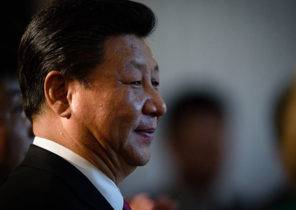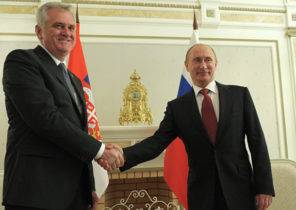
In my early childhood parents on Sundays sometimes traveled to Halifax to have lunch with the Thompsons. And sometimes the Thompsons came to visit us in Leeds for lunch. I loved playing with the children of Thompson have them in the garden, where, as I recall, was a swing and trees. At this time, the adults sat in the house and had conversations about politics, literature and history. Once in 1957, I asked my mother: “When we go back to the Thompsons?” At the time I was seven years old. “Don’t know”, mom said and changed the subject.
More my parents never went to Edward and Dorothy Thompson to the. I’m not even sure that after 1957 they even met, since they had a disagreement. The Thompsons were friends of my parents, Arnold and Margo from College, that is, from the end of 1930-ies. My mother for some time lived in the same apartment as the brother of Edward Frank, who during the war were killed by the Nazis when he was in Bulgaria. But the Thompsons left the Communist party because of the Soviet invasion of Hungary in 1956, and my parents remained in its ranks. And their friendship ended.
In 1990-e years, Dorothy Thompson told me that between the two sides of the platform at the station in Leeds sometimes emotional controversy erupted when members of a crisis meeting of the party was returning from London to Yorkshire. After his father’s death, I learned that he voted against the Pro-Soviet resolution, being in the minority of two people on the Executive Committee of the party. But he believed in the party’s “democratic centralism”, according to which the minority had to comply with the decisions of the majority. So he never talked about it, including their good friend Dorothy.
The gap was very deep. Edward and Arnold abandoned his venture together to write a book about the poet William Blake. Many years later, Edward still wrote this book and sent one copy to my father, who was moved to tears when I read the accompanying note.
This story in all details told Raphael Samuel (Raphael Samuel) at his best book on the subject, where he described “the lost world of British communism.” This is the best that we have. Today, British communism seems to be as a relic of the past, like the Soviet Union, and largely for the same reasons. The Communist party of great Britain (CMP) would not appear to light if not for the Russian revolution of 1917. In 1991, when it ceased to exist the Soviet Union, the party disbanded, and that is the reason that the Leninist revolution had run its course. As one speaker left-wing, comrades, this is no coincidence.
British communism was a tiny pre-Soviet predecessors, but also left many post-Soviet successors, who are still squabbling among themselves for his legacy. But the essence of CFW was its identification with the Soviet Union that proved the turmoil in its ranks caused by the dramatic events of 1956 in Hungary. This party was founded in 1920, revolutionaries, who wanted to protect state workers. Most importantly, another reason for her birth was Lenin himself who wanted such a party existed in the heart of imperialism. Moscow has remained the political lodestar for the British party at least until 1950-ies. In 1960-e years, her dedication has weakened, but Russia continued to provide the party almost until the end, keeping it afloat.
Because of ties with Russia the party of the first 20 years of its existence constantly harassed and intimidated by the police. She conducted searches in the premises and often put on trial or thrown in jail by the British Communists. Because of the close ties with Moscow CFW almost all the time exposed to effective surveillance. By 1952, MI5 knew the personalities of 90% of the members of this party. The national archives released a number of the cases instituted against these people, including my father, and the children of other Communists of that time often come to me with questions, wanting to know whether it is possible to make the case for their parents (although decisions of this kind takes solely MI5).
Because of your loyalty to Moscow in the history of CPV was very bleak from a moral point of view moments. In the 1920s and 1930s, the years she changed the General line at the insistence of the Communist international (Comintern), made a 180-degree turn when in 1939 a Pact was signed between the Nazis and the Soviets (this caused the party more damage than any other event in its history). In 1956, in the party ranks there was a crisis over the Hungarian events, in which the party left many prominent members, including the Thompsons and Samuel. All this in the period after the Second world war deprived the CPV of the success of the elections, which she yearned for.
Some Communists secretly spied on Russia. Many others enthusiastically visited the Soviet Union, and after the war and its satellite countries. But most of the Communists often drew political energy from sources that were closer to home. Yes, the Communists were internationalists with a global political agenda. Yes, there was often naive and sometimes not believed in Stalinist crimes in Soviet interests, and at times and in itself a global revolutionary project. But not only the Soviet Union made them every day to conduct excessively active political life. In most cases, people become Communists and loyal fighters for the workers ‘ cause during the campaigns in enterprises, in the community, during the anti-fascist and anti-imperialist speeches.
Those who are tempted condescending and arrogant attitude towards the British Communists must remember that in those days the Communists were often recorded in the black list, they imposed political restrictions, and their career has been jeopardized.
Those of us who know about it, or grew up in this environment are unlikely to argue with the statements of such writers as Raphael Samuel, David Aaranovitch (David Aaronovitch), and Kenneth Newton (Kenneth Newton). They write that the Communist party of great Britain, despite all its quirks and prejudices, was an alloy of great political loyalty and pragmatism in a truly British manner.
At CFW was a moral code that has taken more from the Bible than from the Bolsheviks. The personification of this code became a British delegate of the Comintern, which at the annual meeting had objected to one proposal as a vote for this proposal entailed a lie. The rest of the delegates of the Comintern met his statement with laughter.
Newton was very unhappy and even desperate due to the fact that the authorities at every turn, suspicious of his research. However, in 1969, he tried to write one of the few analytical reviews of the Communist party. In this rather dry work, “Sociology of British communism,” Newton came to the conclusion that the British Communists, “of course, committed to a common cause and ideology, but their views show more pragmatism, doubt, and humanity, and sometimes unexpected caution”. I think that’s true. It may seem that the Communists were a rather strange romance, and to some extent it is really so; but in other respects they were quite ordinary people.
As someone who grew up in a Communist family from the middle class, and in twenty years moved away from the party, I find that all this corresponds with my own life experiences and experience. My parents were born in 1916 and died in 1986 and 1995. Thus, their lives coincided with the period of the Soviet Union and the Communist party of great Britain. But when the hopelessness of their case at the end of the 20th century it became obvious, they often talked about the fact that first and foremost loyal to his party and his friends from the team, not the Soviet Union. Party to such loyalty is often reciprocated, although in practice was not as monolithic as in theory that would confirm the late historian and Marxist, Eric Hobsbawm (Eric Hobsbawm), and many others.
Not to say that the Soviet Union was on the side of the British Outlook of the Communists. This is not so. He was always present in the background. This fact emphasize my first childhood memories. It is memories of Stalin’s death. Mentally I still see my mother reading about it in the Daily Worker. My contemporaries, most likely, remembered other events, say, a coronation or the FA Cup final of 1953, is named after Stanley Matthews. I don’t remember these events, but don’t feel left out because of such ignorance. On the contrary, I have a curious feeling that I was among the elect.
Most of the Communists I knew in childhood, that is, in 1950-e years, is still seen in the USSR, a new type of society, and hoped — but mostly I believed that with time it will get better. The Communists were optimistic. They believed in progress. They were Wanderers who went on a long journey. The laws of history, as they understood them, was on their side, because it spoke of Marxism. They have considered themselves a modern, well-informed, standing on the side of rationalism, science and the future.
When my parents took me to the funeral of the party leader Harry Pollit (Harry Pollitt) in 1960, where Paul Robeson sang Joe Hill and the funeral of former member of Parliament from the CPV Willie Galaher (Willie Gallacher) in 1965, during which people on the streets gave him a last homage, holding up the clenched fists, the Golden days of the party were in the past. But I believed that she belongs to the future.
At least until the mid 1960-ies this point of view had the right to exist. Its main embodiment was Yuri Gagarin, whose picture I proudly hanged in 1961, on the wall in my room. That for the future of Russia, believed not only its unconditional supporters, but some opponents of the Communists. If you read the speech by Harold Wilson (Harold Wilson) about the “white heat of technology”, which he delivered in 1963, you will find that it is based on the argument that Britain needs a scientific revolution, but otherwise it can overtake the Soviet Union.
At the same time, we all understand that we are in the minority. The Communist party of great Britain never were numerous. She was just tiny compared to the Communist parties of France and Italy. At the peak of its prosperity at the end of the Second world war, it consisted of about 50 thousand members. CPV was a small fish in the company of sharks as a Conservative party, which, according to her statements, in the 1950s, there were 2.8 million members, or the labour party, which was over a million. And although the “vote Communist” at that time it was a notable phenomenon, particularly in Glasgow in the Scottish region of Fife, in the valleys of Wales and in London’s East end, those 102 thousand votes that were given in 1945 for the Communists (then two members of the CPV became members of Parliament), was the biggest electoral success of the British Communist party.
British Communists are known to have had a disproportionate to their population impact. The most visible impact they had in the industry. It was a proletarian party — even more so than the Communist party. In the heyday of the CPV one-third of organizations were in the factories, which caused the Communists a great pride. Especially strong positions the Communists held in the engineering environment, but they also used tangible influence in the cooperative movement, in the system of higher and secondary education, and in countless community organizations, including the sphere of arts, especially theatre. The Communists played a decisive role in the pre-war unemployed movement in post-war peace movement. In addition, they were highly visible among the tenants of public housing, fighters for civil liberties and the homeless.
Since the party was small, her influence was present the element of chance, and its effects were local. The party was strong in Sheffield, but it was a weak position in Liverpool. The Communists of Hertfordshire in the 1930-ies took a more leftist position than everyone else, and the Communists of Surrey in the 1960-ies strongly supported on the side Boards.
One Russian critic KPV initial phase of its existence, condemned the party for what she is “close friends” and not a disciplined force. The party never lost this quality. In addition, it had its own language and rules. If you were a Communist “membership card”, you had an additional “activity.” The party comrades engaged in “party work”, “factory work” or “University work,” as my father. I ran a “political Committee.” Meetings were held in the school auditorium. Meeting in the primary organizations it was impossible to miss in any case. The Communists paid “contributions” and them cards to put those stamps. Some meetings could involve only the Communists, paying “dues”. “Progressive people” I had to lure to his side. The Communists sell “literature”, which was received in the “party room”, where he also conducted the Daily Worker Bazaar (at least it was in Leeds). Careerists were considered bad people, but even worse attitude to whistle-blowers. The most vile in the ranks of the Communists were the Trotskyists.
In addition, the party was a public organization and the system of social support. In its ranks were the party doctors, electricians, party, party car dealers. My parents hired a party of gardener who fought in the international brigades. Everyone knew who the members of the party is versed in wines, who in ancient Greek art who in agriculture. It was believed that marriages should be enclosed within the party. To novels with the conservatives was frowned upon (I know this on personal experience). If you suddenly found themselves in a strange city far from home, the party could find you a bed. Members of the party, as well as their children usually read books like that, which the non-party had no idea. If you spoke Russian, it gave you a special mystique. To Scotland, where many party leaders are always treated with special respect, not only because of its scenery and music, but also because of the belligerence of the inhabitants.
All of this sometimes had a lasting impact. Samuel wrote: “Like many other Communists of my generation, I combined a powerful sense of isolation and thirst for recognition, the desire for demonstrative disobedience and desire to be an ordinary man from the crowd”. This duality was typical of the Jewish Communists, but she was typical of other Communists, as well as for the party itself. It remains to this day. I feel like this is my mark for life. Perhaps others have the same feeling.
But in the 1960-ies these strong ties began to weaken. Samuel writes about “the feeling of a critical situation,” which convinced the Communists that they are living in a period of tectonic shifts. But gradually this feeling began to weaken in the face of defeat and failure. Earlier the Communists saw the world as the arena of the ongoing epic struggle, but now the feeling is beginning to fade. And in the Communist movement was split between Russia and China. Those sharp differences that existed between the working and the middle class, was fading. 60-e years were a time of cultural rebellion. When I was at University, the Communists of both sexes grew their hair long and wore jeans, however, a student organizer continued to walk in a suit with a tie and condemned jeans as a manifestation of Americanism. These and many other contradictions led to the protracted agony of communism, which occurred in the 1980-ies.
The Soviet Union collapsed for two main reasons. This system did not work and rejected it most people. This verdict was final and fair. The weakening of the British Communist party moved away from Soviet Union long before its demise, but still shared his fate. In its ranks, the struggle between the old fashioned hardliners and more liberal “eurocommunists”, which the press paid much more attention than all the other events in the history of the Communist party.
When the Soviet Union collapsed, the Communist party of great Britain has lost a consistent and clear guidelines and goals, as well as its previous Outlook. In the end, she did very adequately, announcing the dissolution (although its remains named the Communist party of Britain, continue to exist). She stopped to separate themselves from British society, and just disappeared into it. It was a logical unsentimental outcome for such a rational thinking party. But inevitably there is a sentimental sense of loss when I think about the fact that the ashes of this “society of friends” dispelled, finally, on the British ground.
Martin Cetl — Deputy editor The Guardian.






